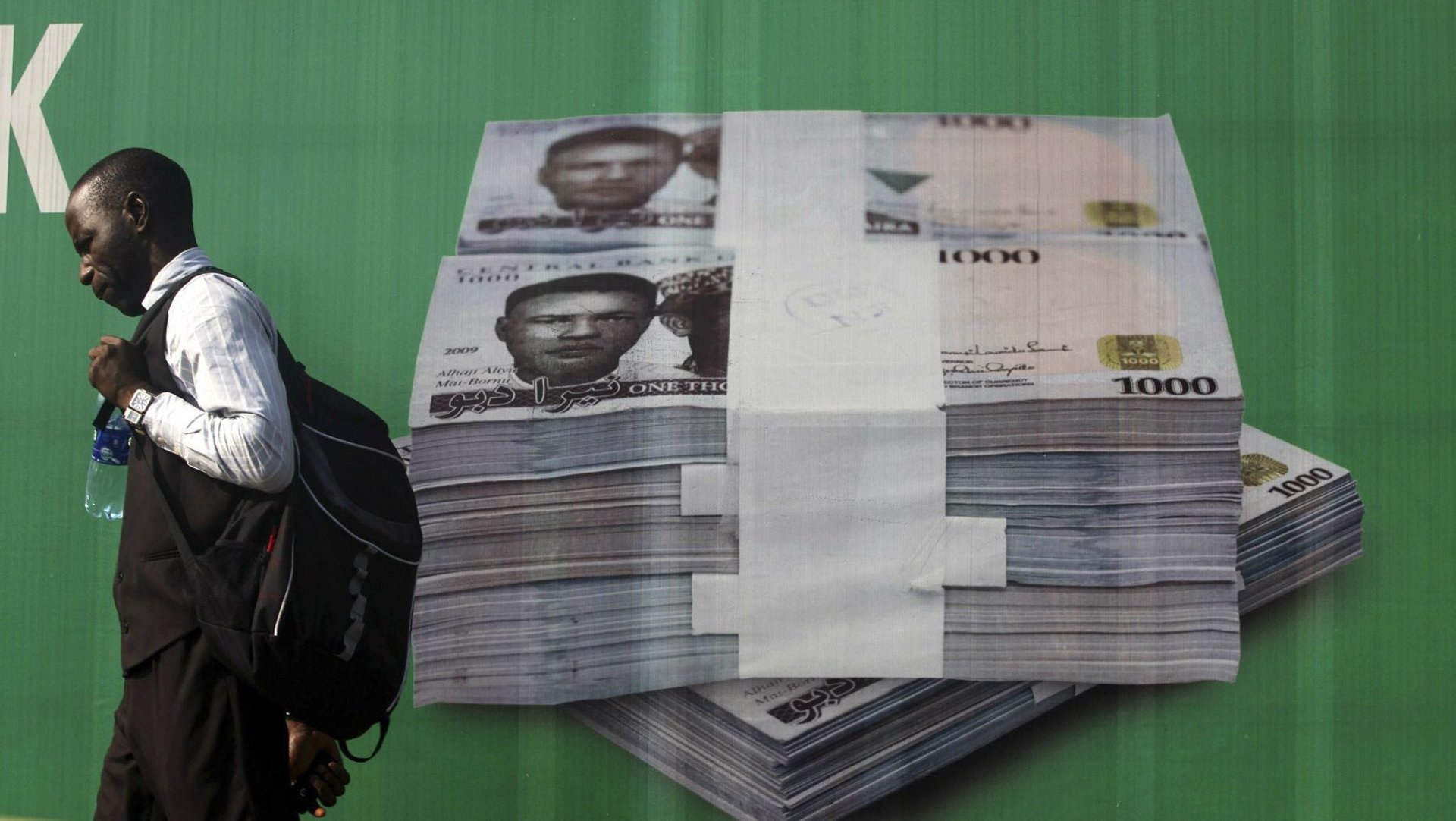Nigeria’s naira is tumbling after a currency float, but that’s a good thing
After the first day of trading following a currency float, the value of Nigeria’s naira dipped by 31%, selling at 288.85 naira as markets closed on Monday (June 20). It was the first day in recent history the naira was traded openly with its value decided by market forces in line with the Central Bank’s new flexible policy. The apex bank also says it has cleared a backlog of foreign exchange demand of around $4 billion.


After the first day of trading following a currency float, the value of Nigeria’s naira dipped by 31%, selling at 288.85 naira as markets closed on Monday (June 20). It was the first day in recent history the naira was traded openly with its value decided by market forces in line with the Central Bank’s new flexible policy. The apex bank also says it has cleared a backlog of foreign exchange demand of around $4 billion.
The naira had previously been officially pegged between 197 and 199 per dollar as the government instituted strict currency controls in a bid to protect its foreign reserves following depleted earnings caused by the falling price of oil, the country’s main resource.
The plunge in the value of the naira in reflection of market realities validates the long-term calls for the devaluation of the currency before the country’s government finally budged last week.
In truth, for most everyday Nigerians and small to medium-sized businesses the naira is only just coming in line with its value on parallel markets, where it has traded between 300 naira to 350 naira per dollar for several months. Nigeria, which depends on oil sales for much of its foreign currency, has seen the naira hit by the global downturn in oil prices. Only a limited number of large banks and traders had access to foreign currency at the 197-199 naira rate. This often created arbitrage opportunities in the banking system.
As has been the case over the past year, the naira still has two different prices. While the interbank value of the currency weakened following the float, its value on the parallel market—which served as a primary source of foreign exchange in the last few months—was quoted up to 10% stronger. Over time, the Central Bank is counting on its new policy and increased availability of foreign exchange to result in a convergence of both values of the naira. Describing the first day of the float as a “robust take-off” of its new policy, the apex bank hopes investor confidence, previously frayed, will return to the country’s economy which shrank in the first quarter of the year.
The bank’s optimistic outlook will likely not be shared by Africa’s richest man, Aliko Dangote whose fortune fell by $3.7 billion following the take-off of the new currency float.